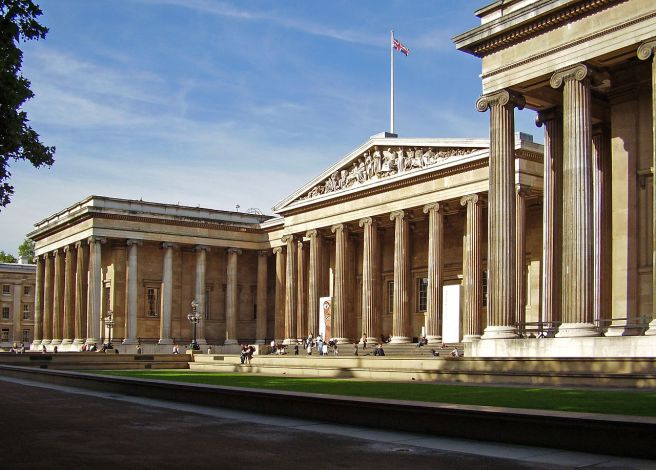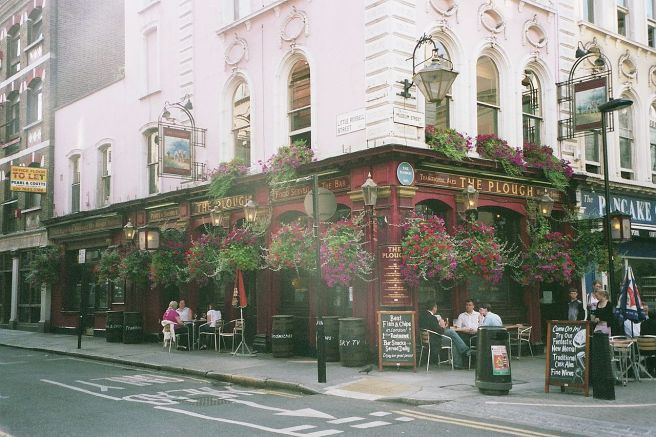My first airplane trip ever was to England for a six-week Study Abroad program during the summer of 1984. I was a graduate student majoring in history at a small public liberal arts college in central Georgia. My concentration was civil rights in the South, but I was also a fan of British literature and history. I had read Dickens, Trollope, Austen, Woolf, and many other major British writers while I completed a BA in English. I was fortunate enough to receive two different scholarships offered by my college, along with generous assistance from my parents, to cover the cost of the program sponsored by a university in Atlanta.
Not only was this my first flight, it was also my first time leaving the South. Up to this time I had ventured no farther north than Washington, D.C. and no farther west than Alabama. Flying was an alien form of transportation for my family. My father had flown one time in his life as a young man to Pennsylvania, but that was it. He loved the idea of traveling, and our family took road-trip vacations every summer to places in Florida, Tennessee, and the Carolinas. My parents had respectable jobs but not the kind of professional careers that afforded the luxury of air travel in the 1960s and 1970s. As far as I know, my mother died in her early eighties without ever boarding a plane, which is ironic considering that she worked at a huge Air Force base surrounded by aircraft. I will always be grateful for the sacrifice my parents made for me to travel overseas.

The program I was enrolled in allowed me to pick up several credit hours that would be applied toward my degree. Our class numbered about twenty students, and we were led by two professors teaching in Georgia. We were not officially affiliated with an institution in London where we were based for the six weeks. Our classes were informal and held in the dining area of the Haddon Hall Hotel we occupied on Bedford Place, a block from Russell Square and just around the corner from the British Museum. Haddon Hall was more like a hostel than a hotel by American standards. I had not lived in dorms as a student, so it was a bit of an adjustment to share a bathroom and showers with a large number of strangers of both sexes occupying a floor of the hotel.
Most of our curriculum involved field trips to museums and historic landmarks, and we were required to write papers based on what we learned on our tours of these places. As a class we visited the London Tower and saw the Crown Jewels. We also visited the British Museum, the Victoria and Albert Museum, the National Gallery, Westminster Abbey, Windsor Castle, the Royal Observatory at Greenwich, and other famous sites. The typical routine for the course was to meet with our professors for a lecture about the places we would visit, and then we would have follow-up discussions before writing down our thoughts and reflections.
Another major component of the program was the theatre — we attended numerous stage productions in some of the most famous houses in the city. We saw Andrew Lloyd Webber’s musical “Cats” in the round at the New London Theatre (now the Gillian Lynne Theatre) when it was only four years old. We saw award-winning actors like Claudette Colbert and Rex Harrison in “Aren’t We All” and Peter O’Toole in “Pygmalion.” These were the first professional plays I had ever seen, and I was mesmerized. Our professors did a fine job of planning and coordinating all our activities, providing the class with meaningful exposure to British culture and history.

One of the most valuable features of the program was the free time we had to explore on our own. I was able to wander around London’s parks, avenues, markets, and squares for hours at a time, watching people interact with one another. I returned to museums the class had visited to spend more time in wings and galleries that interested me most. I also took advantage of opportunities that were not included in the class syllabus, like historic and literary walking tours, attending Mass at St. Paul’s Cathedral, and watching the changing of the guard at Buckingham Palace. I stood just a few yards from Queen Elizabeth II as she rode by on horseback celebrating her birthday as part of the Trooping the Colour ceremony. I made day and weekend trips to Stratford-upon-Avon, Wales, and St. Albans. I took a hovercraft across the channel to spend the day on the west coast of France in Calais and Boulogne. I spent a fabulous day at Wimbledon during the Grand Slam tennis tournament and had the chance to watch athletes like Chris Evert compete on the grass courts while I savored mouthfuls of strawberries and cream.


Spending six weeks in London gave me some idea of what it would be like to live in the capital and the most populous city in England. I spent my free time in much the same way the locals do by enjoying the green-spaces, hanging out at Piccadilly Circus, shopping occasionally, strolling along the Thames, attending outdoor events, and traveling around the city in the Tube. Of all my immersion experiences in London, the evenings I spent at a neighborhood pub called The Plough were the ones that I remember most fondly. Pub food was undeniably the best of any I tried in England, and the meals I had at The Plough were authentic and delicious. More importantly, I was introduced for the first time there to hard cider, a perfect alternative to beer for people like me who have never “acquired a taste” for liquid barley, yeast, and hops. It would be several years before hard cider made its way to the shelves of stores in America, but once it did, the beverage became quite popular. I am never without bottles of cider in our refrigerator and find it on tap frequently now in bars everywhere.
There was an old professor from the University College London who must have spent every evening in The Plough. I don’t recall his name or even his face after all these years, but we developed a friendship, and I enjoyed hearing his stories about students, about being British, and about living in London. He was a serious music lover and was obviously proud of his LP collection, which he treated with all the care of an antiquities conservationist. As he put it, “Once played on a ruby, ALWAYS played on a ruby.” I frequented the pub more and more often, and he would recognize me when I walked in the door. With a bombastic voice in a heavy British accent, he would exclaim from across the room, “Come over here, you damn Colonial!”

My time in England as a graduate student was transforming and gave new meaning to the history and literature I had studied. It altered my thinking about so many aspects of life and what it means to be both an American and a human being. All of the students were required to keep a personal journal to record thoughts and feelings about our varied experiences. I still have mine, along with some memorabilia from those six weeks. Over the years, I have pulled out the journal several times and relived so many moments that will be with me as long as memory allows.

